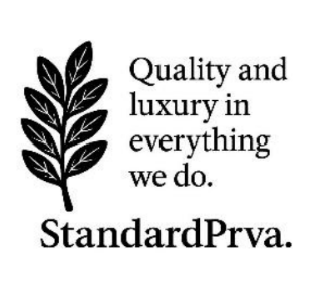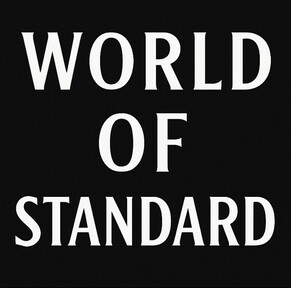Deregulation of the Banking Sector: Necessity or Not?
24.07.2025Written by: Miloš Stevanović
Recently, global financial centers have been witnessing a wave of deregulation in the financial sector. London and New York, as leading global hubs, are re-examining and reducing the strict rules established after the 2008 financial crisis. Governments and regulators in major economies are initiating a global wave of deregulation of banking regulations – the goal is to encourage more investment, strengthen competitiveness, and enable banks to operate more flexibly. This shift toward more liberal regulation is justified by the claim that excessive regulation has left a lot of capital unused on the sidelines, which harms both savers and the development of the capital market. In short, deregulation is being promoted as a necessary step for the financial sector to once again become a driver of economic growth.
Global Trend: Bringing Risk Back Into Play
Regulatory changes in the United Kingdom and the United States clearly illustrate this trend. The British government, through the so-called “Leeds reforms,” announced a series of measures to “lift the regulatory yoke from the neck of the economy.” The changes include easing capital requirements for banks, simplified procedures for approving new financial companies and products, as well as a reform of the rules separating investment and commercial banking. The essence of these moves is to free the financial sector from excessive bureaucratic burdens in order to stimulate “animal spirits” – metaphorically speaking, a return of entrepreneurial spirit and willingness to take investment risks for faster growth.
On the other side of the Atlantic, the United States is also easing restrictions. American regulatory agencies have already relaxed some capital and leverage requirements for large banks, which has freed up part of the capital for lending to the economy and returning it to investors. Federal authorities have raised the threshold for applying the strictest banking regulations, allowing mid-sized banks to merge and expand operations more easily. These changes have already led to an increase in dividends and share buybacks in the U.S. banking sector, which shows that the relaxation of rules is making financial institutions feel freer to channel capital into the economy. In the European Union, the pace of deregulation is more cautious but still present – full implementation of the so-called Basel III standards is being postponed, and certain provisions are being reconsidered to keep European banks globally competitive. All of this shows that easing the regulatory grip has become an international trend, driven by the belief that giving the financial sector more breathing space will bring new investment energy.
Competitiveness vs. Stability: Where Is the Balance?
Advocates of deregulation emphasize that reducing rigid rules could release the brakes that have so far held back credit expansion and innovation. Years of strict regulation, introduced to prevent new crises, have also had the unintended consequence of making banks cautious and more focused on regulatory compliance than on financing development. Now, there is an effort to bring back a certain level of controlled risk into the system: the idea is that a robust but more agile financial sector can more efficiently channel savings into investments and loans for the economy. The example of Britain shows confidence that an “optimal balance that brings resilience and growth” can be found – as stated in reform announcements – where banks remain stable while becoming more dynamic in lending.
Critics, however, warn that too much loosening can plant the seeds of new financial instability. They point out that it was precisely the lack of regulatory restraints and excessively risky behavior by banks that led to the 2008 crisis. A legitimate question arises: could today’s “wave of deregulation” cause another market collapse tomorrow? Skeptics cite examples such as the recent collapse of Silicon Valley Bank in 2023, which was partly attributed to relaxed regulations for mid-sized banks in the U.S. Also, a £42 million fine imposed on Barclays Bank in the UK for failures in preventing money laundering shows that even existing regulation is not excessive – the financial system still contains weaknesses that require attention. So, the challenge is how to deregulate without jeopardizing stability. Supporters respond that targeted and measured deregulation – focused on removing unnecessary bureaucracy, not abandoning basic prudential standards – can bring benefits without giving up systemic stability.
Conservative Market of Bosnia and Herzegovina Under the Spotlight
While the world weighs deregulation against risk, Bosnia and Herzegovina is on the opposite end of the spectrum – our financial market has long been dominated by conservative regulation. The banking sector of BiH is considered one of the most organized and regulated segments of the economy, largely aligned with European Union regulations. Such strict rules have contributed to financial stability: banks in BiH are now well-capitalized, liquid, and profitable, with record low levels of bad loans. Predominantly foreign ownership (about 75% of banking capital is held by foreign banks) has also introduced high risk management standards. Thanks to this, our banks have weathered both the global financial crisis and later turbulence without major shocks, protecting citizens' deposits and overall monetary stability.
But the price of this stability is a relatively modest contribution of banks to the development of the domestic economy. Lending to the private sector in BiH has remained limited – banks prefer to place funds into safer forms (short-term consumer lending, loans to public enterprises) rather than into long-term business projects. According to the Central Bank, total loans to households and the public sector still make up the majority of the portfolio, while small and medium enterprises and startups have a harder time securing financing. The reasons are multiple: from high risk aversion of bank management and their conservative foreign parent companies, to regulatory policies that involve strict capital requirements and cautious criteria for lending. In short, the conservative environment has brought security but also a certain lethargy in lending activity.
The Need for Loosening the Grip in BiH
That’s why the question arises – is it time for domestic regulators to consider controlled deregulation? The banking agencies of the entities (FBiH and RS) could re-examine where regulatory pressure can reasonably be reduced to open up space for banks to more strongly finance the economy. This doesn’t mean sudden and reckless abolition of important rules, but rather targeted easing of those procedures and requirements that unnecessarily hinder healthy banking operations. For example, the approval process for new financial products and digital services could be sped up, which would encourage innovation in the sector. Furthermore, if the minimum capital indicators of domestic banks are significantly above international standards, the regulator could consider moderately lowering those requirements or applying more flexible treatments for loans aimed at productive investments. This would free up resources for banks to place more funds into promising projects. Similar steps are being taken by other countries in the region that are trying to attract more investment – positive experiences can be seen in cases where simplified regulation led to increased lending activity without endangering system stability.
The Banking Association of BiH already emphasizes the importance of a better business environment and a partnership relationship with authorities. As stated by the new director of the Association, it is necessary in dialogue with regulators to reduce administrative barriers and improve the regulatory framework for banks. This also implies that authorities should urgently resolve outstanding issues from the “White Book of Banking,” where domestic banks have identified specific regulations that hinder their operations. One of the goals must be to increase capital inflow into the economy – both through more lending to private companies and through attracting new financial players and investors to the BiH market. If global financial leaders can find a balance between risk and growth, BiH should strive not to remain an isolated island of excessive caution. On the contrary, by preserving basic safety principles, carefully measured deregulation can enable banks to take on a more active development role.
Conclusion: Time for Measured Deregulation
Analyzing global trends and the specificities of the BiH market, the conclusion emerges that deregulation of the banking sector is a necessary but carefully measured step toward revitalizing the economy. Of course, regulatory balance is delicate – one look at history is enough to understand the cost of completely ignoring risk. Still, the current consensus in financial centers from London to Washington is that rigid rules have become a brake and need to be adapted to new conditions. Bosnia and Herzegovina, with its conservative approach, can draw lessons from these developments. The existing capital surpluses sitting on the sidelines should be employed for productive purposes – by encouraging banks to lend more to sustainable projects in energy, infrastructure, the digital economy, and other sectors of the future.
Ultimately, the goal of deregulation is not to abandon control, but to establish a modern framework where banks can operate more easily, and the economy can breathe more freely. If banks are enabled to respond faster to market needs and innovate, they will more effectively fulfill their developmental function – as drivers of investment and generators of new jobs. Such a positive approach to regulatory change could place BiH on the path of faster growth, while maintaining public trust in the stability of the financial system
Deregulation, when thoughtfully implemented, can truly be a necessary step forward – not just a passing trend, but a condition for the banking sector to fully function as an engine of economic progress.
Sources:
Financial Times – “The global drive to deregulate” (analysis of current reforms in the UK, USA and EU); Reuters Breakingviews (commentary on the British “Leeds reforms” and deregulation risks); AInvest Analysis (global deregulation trends and effects on banks); U.S. Dept. of Commerce (overview of the banking system in BiH); Association of Banks of BiH (interview: views on regulation and the need to improve the framework).
/ / /
"Standard Prva" LLC Bijeljina is a company registered in Bijeljina at the District Commercial Court in Bijeljina. Company’s activities are accountancy, repurchases of receivables, angel investing and other related services. Distressed debt is a part of the Group within which the company repurchases the receivables, which function and are not returned regularly.
Lawyer’s Office Stevanović is the leading lawyer’s office in the region with the seat in Bijeljina. The LO abbreviation represents Lawyer’s Office of Vesna Stevanović and Lawyer’s Office of Miloš Stevanović.
Contact for media press@advokati-stevanovic.com or via telephone 00 387 55 230 000 or 00387 55 22 4444.

.jpg)


